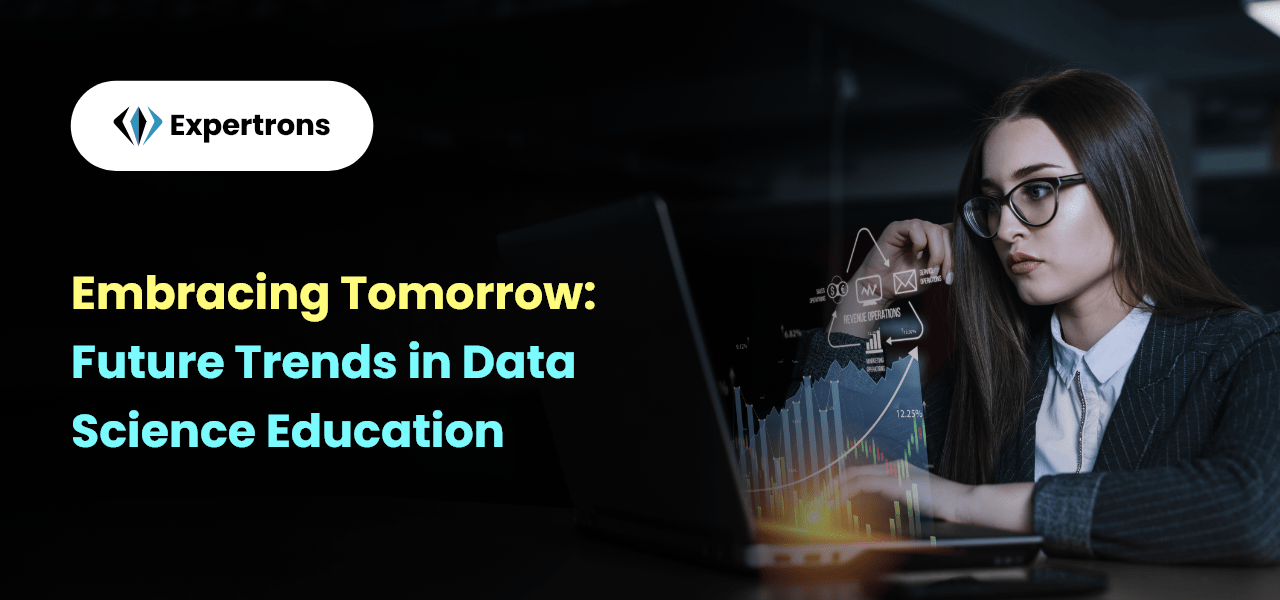Introduction
In the ever-evolving landscape of technology and business, staying abreast of future trends is paramount. As we embark on the journey of exploring the future of data science education, we delve into the emerging trends that are shaping the landscape and transforming the way professionals acquire and apply data science knowledge.
Integration of Artificial Intelligence (AI) and Machine Learning (ML)
The future of data science education is intricately linked with the integration of cutting-edge technologies. With AI and ML taking centre stage, programs are evolving to include more comprehensive coverage of these technologies. Preparing students to harness the power of intelligent algorithms and automated decision-making systems.
Specialized Focus on Ethical Data Usage
As data becomes an increasingly valuable asset, the ethical considerations surrounding its use are gaining prominence. Future data science programs are expected to incorporate modules on ethical data practices. Ensuring that professionals are well-versed in responsible and ethical data handling.
Personalized Learning Paths
Recognizing students’ diverse backgrounds and career goals. The future of data science education will likely witness a shift towards personalized learning paths. Adaptive learning technologies will tailor educational experiences to individual needs. Allowing students to focus on areas relevant to their specific interests and career aspirations.
Also read, Unveiling the Power of Data Science: A Beginner’s Guide
Industry-Integrated Curriculum
To bridge the gap between academia and industry requirements, furthermore, future data science programs are expected to feature more industry-integrated components. This ensures that graduates are not only equipped with theoretical knowledge but also, possess practical skills that align with the demands of the professional world. Moreover, this shift emphasizes the need for a holistic educational approach, encompassing both theoretical foundations and real-world applications.
Increased Emphasis on Soft Skills
In addition to technical proficiency, the future of data science education recognizes the importance of soft skills. Communication, collaboration, and problem-solving will be emphasized, as data scientists are increasingly expected to work cross-functionally and convey complex insights to non-technical stakeholders.
Continuous Learning and Micro-Credentials
The rapidly changing nature of technology requires a commitment to continuous learning. Future data science programs may embrace the concept of micro-credentials. Allowing professionals to acquire specific skills incrementally, keeping pace with the evolving demands of the field.
Conclusion
As we peer into the future of data science education, it’s evident that the landscape is dynamic and responsive. The integration of AI and ML, ethical considerations, personalized learning paths, industry integration, soft skills development and a commitment to continuous learning are not only building blocks but also shaping the next generation of data scientists. By staying attuned to these future trends, both educators and aspiring data scientists can chart a course towards success in the ever-changing world of data science.
Frequently Asked Questions
The future holds exciting developments, including an integration of AI, a focus on ethical data usage, personalized learning paths, industry-integrated curriculum, emphasis on soft skills, and a commitment to continuous learning.
Future data science programs are evolving to integrate AI and machine learning comprehensively, providing students with the skills to harness the power of intelligent algorithms and automated decision-making systems.
Absolutely. Emerging trends include a specialized focus on ethical data practices, ensuring that data science professionals are well-versed in responsible and ethical handling of data.
The future envisions personalized learning paths, allowing students to tailor their educational experiences to individual interests and career goals, supported by adaptive learning technologies.
Yes, with an industry-integrated curriculum, future data science programs aim to equip graduates not only with theoretical knowledge but also with practical skills aligned with the demands of the professional world.











